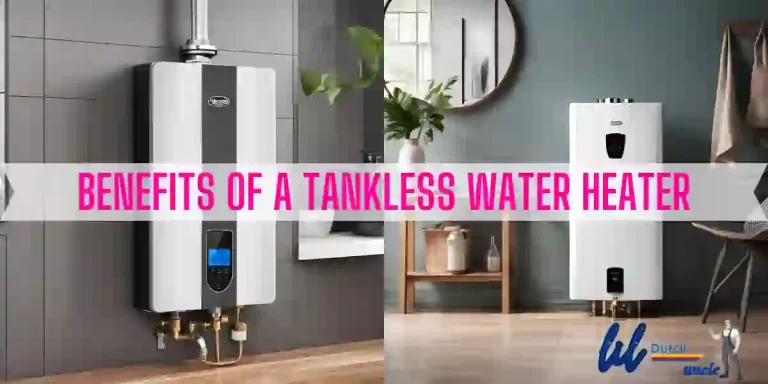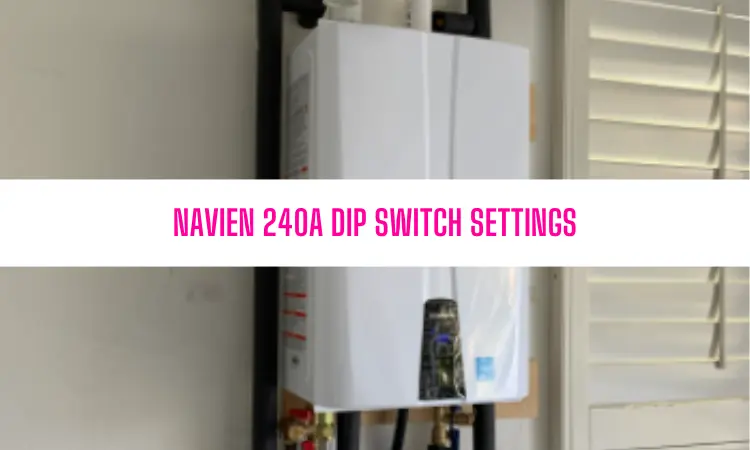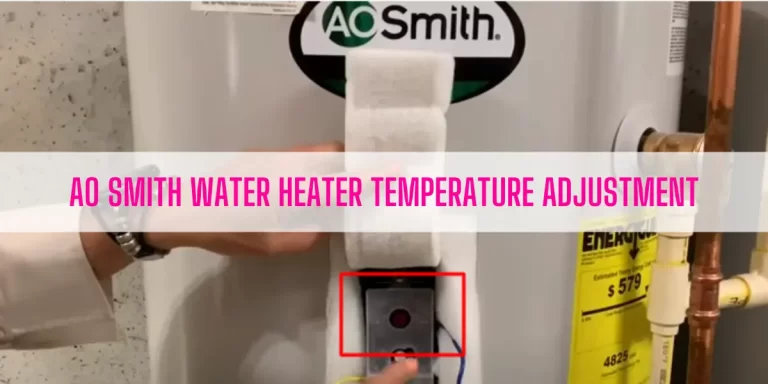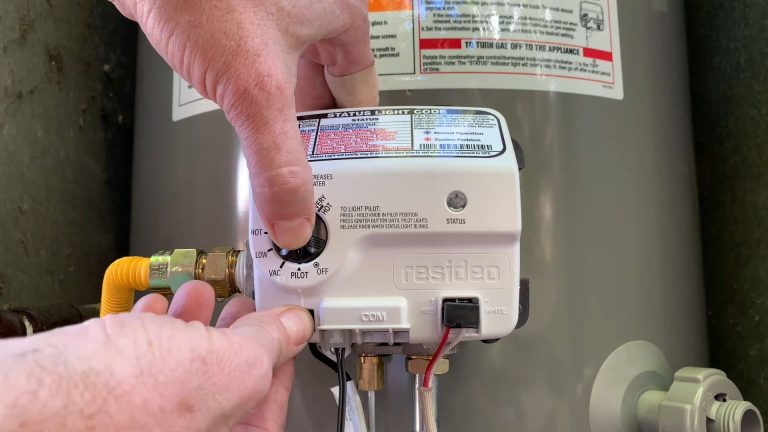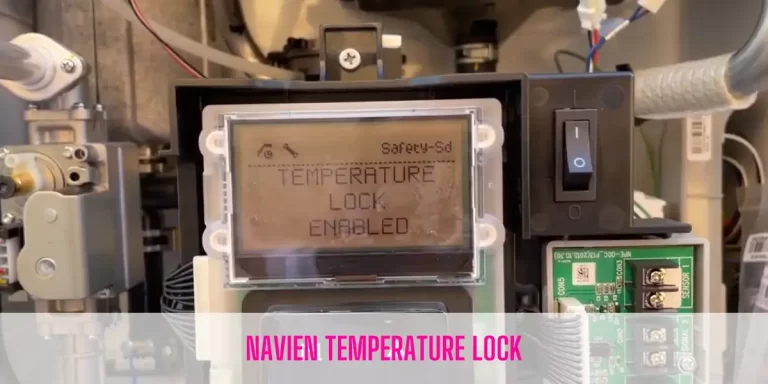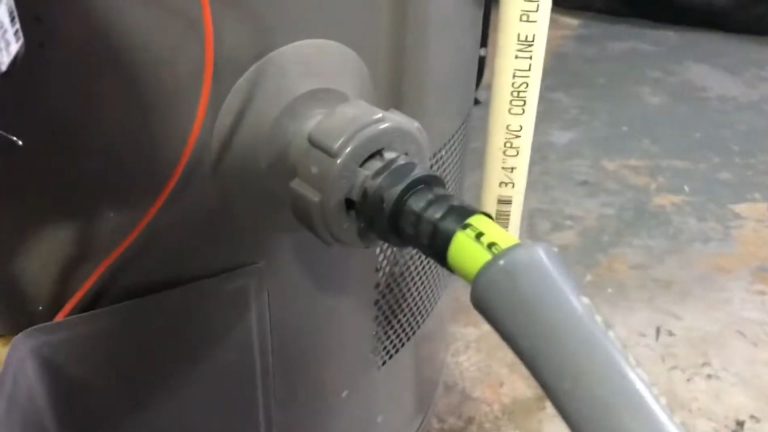You can find different types of water heaters, including:
- Tankless water heater
- Storage water heater
- Solar water heater
- Heat pump water heater
- Condensing water heater
- Point-of-Use water heater
Throughout this guide, I will explain how each water heater type works, and their pros & cons. So, let’s dive in.
6 Different Types of Water Heaters
Let’s discover 6 types of water heaters, their advantages, and disadvantages.
Tankless Water Heater
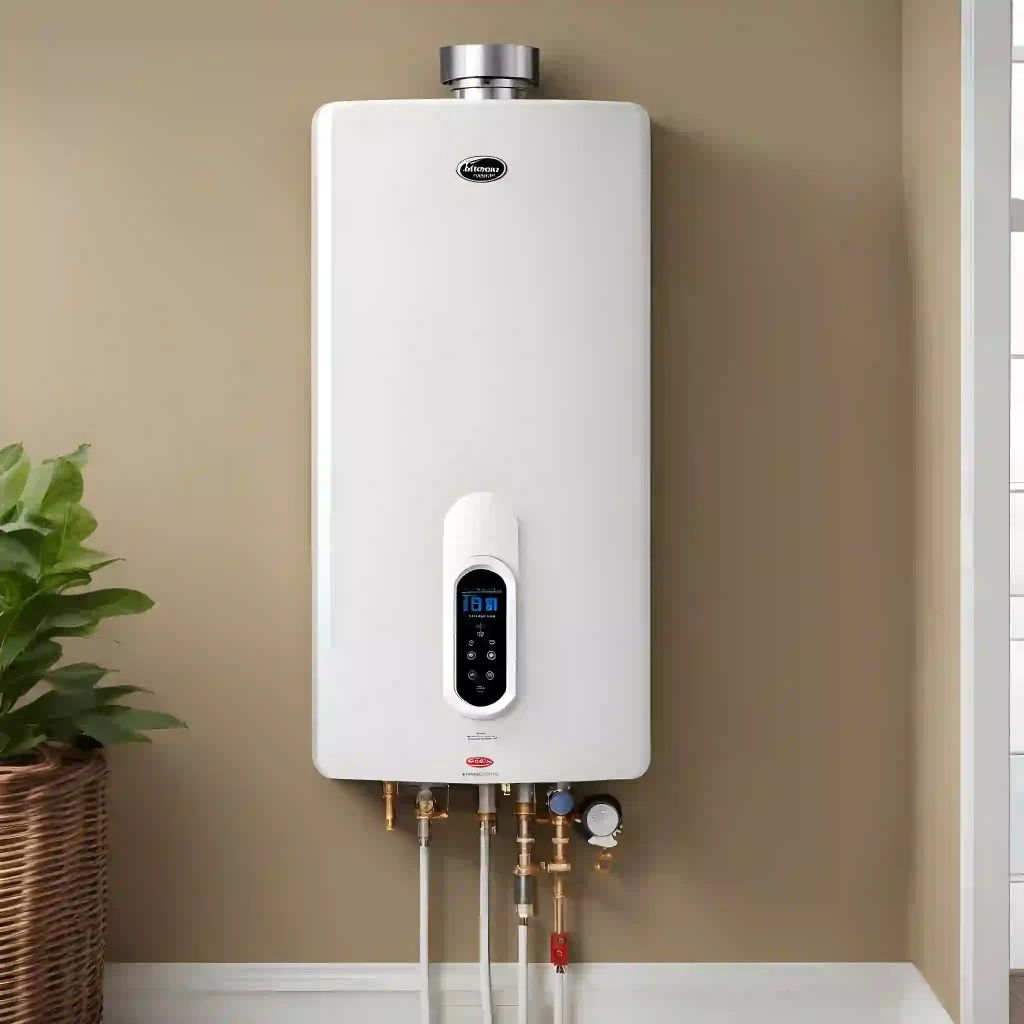
A tankless water heater, an on-demand or instantaneous water heater (whatever you call it), provides hot water on demand. Unlike your traditional tank-type water heater, it doesn’t waste energy (standby energy losses) to heat or reheat. As a result, it can save money while delivering you an endless hot water supply.
How Does A Tankless Water Heater Work:
A tankless water heater has either a heating element or a gas burner based on its type (gas or electric).
When you turn on a hot water faucet, cold water enters the tankless system through the heat exchanger. And the unit starts the operation mode.
The burners ignite as the cold water is heated in the heat exchanger if you have a gas tankless water heater. On the other hand, if you have an electric tankless water heater, the heating element will heat the water in the heat exchanger.
Then, the hot water flows to the fixtures.
When you turn off the hot water faucet, the tankless unit goes to standby mode.
Pros:
- Energy efficient compared to the conventional tank-type water heaters
- A good choice for homeowners with tight space
- Extended lifespan (it will service you for around 20 years)
Read this article to discover more benefits of a tankless water heater.
Cons:
- The initial cost is comparatively high. However, the energy efficiency and durability will compensate for the cost.
Storage Water Heater (Tank Water Heater)
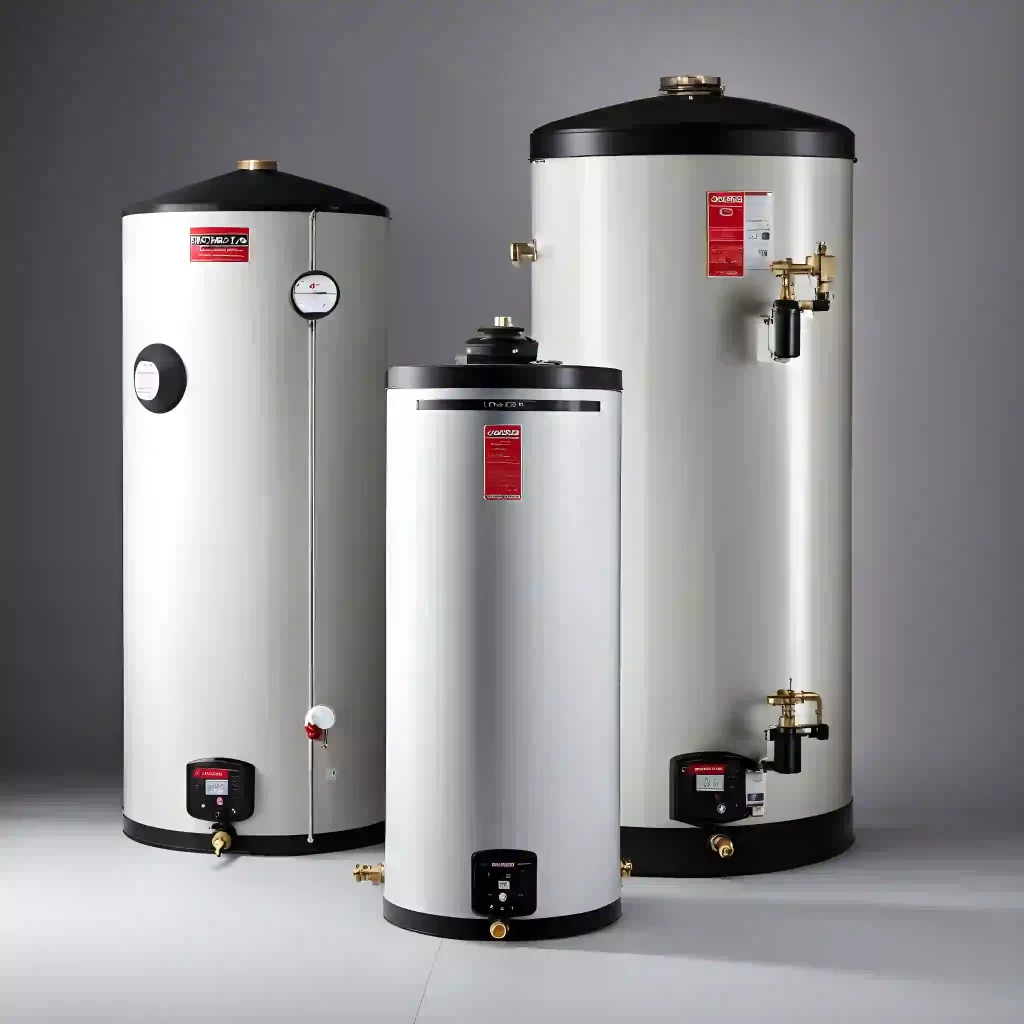
Storage or tank water heaters are the most common type of residential water heater in the United States. Due to their prevalence in the market, storage water heaters are affordable. The size range of a storage water heater is 30-80 gallons of water.
There are two types of tank water heaters, including:
- Electric tank water heater
- Gas tank water heater
Below, you will learn how each storage water heater works, and its advantages, and disadvantages.
How Does An Electric Storage Water Heater Work:
An electric tank water heater has two heating elements- upper and lower. When you turn on a hot water fixture, cold water enters the bottom of the tank through the dip tube. Then, the heating element will start heating the water. Next, the heated water will flow from the top of the tank to the fixtures.
How Does A Gas Water Heater Work:
A standard water heater burns gas to heat the water stored inside the insulated tank.
When hot water is used, cold water enters through a dip tube and fills the bottom of the tank. The gas control valve with a built-in thermostat will monitor the water temperature. When the thermostat senses cold water, it will open up the main gas valve. Air is drawn from below the tank and mixed with gas.
Then, the main burner ignites and the exhaust fumes rise through the flue vent. The burner continues to heat the water until it reaches the set temperature.
Pros:
- Water capacity is large
- Affordable installation
- Easy to repair
Cons:
- Use a lot of energy to heat water continuously
- Require a lot of space to install
- Shorter lifespan compared to a tankless unit
Solar Water Heater
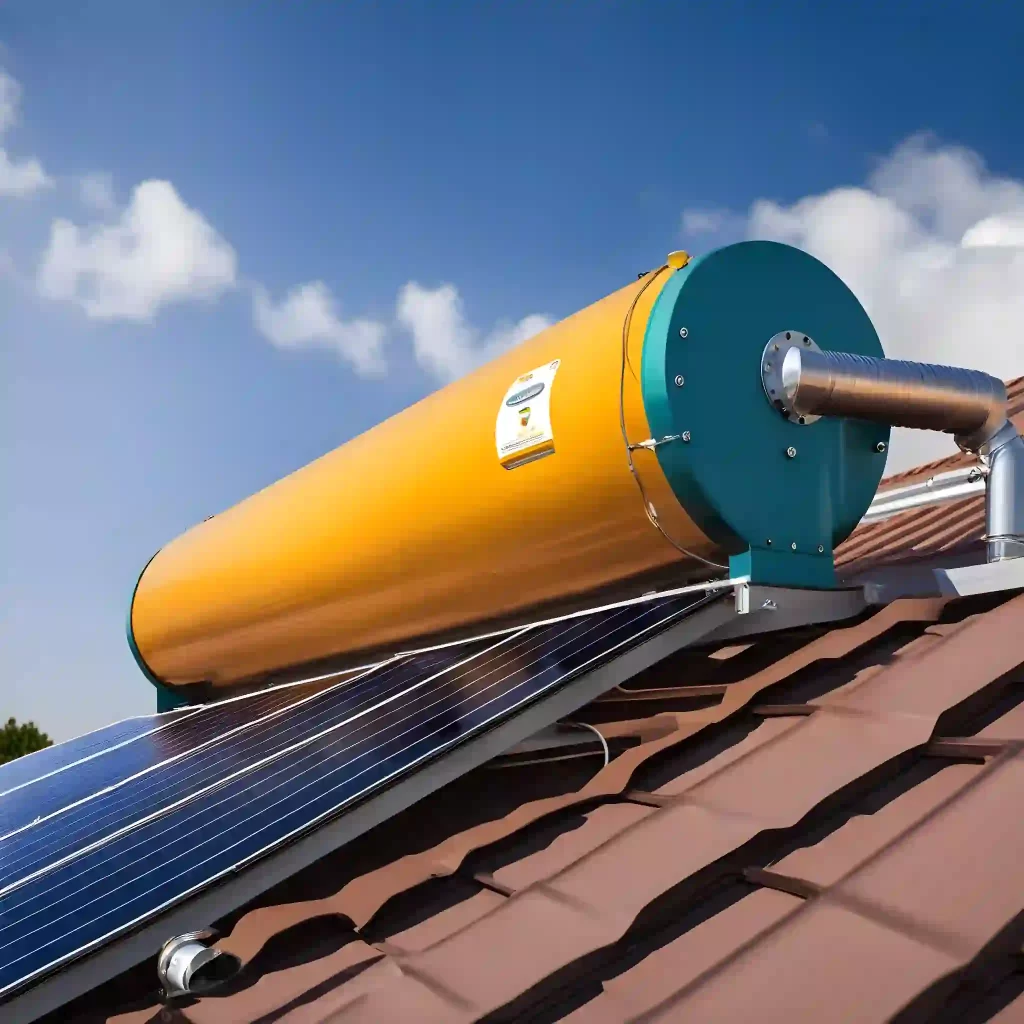
Are you looking for a water heater to generate hot water cost-effectively? Then, solar water heaters are the ones you can rely on. You can use it in any climate, and the fuel it needs to power on the water heater is… sunshine…is free.
How Does A Solar Water Heater Work:
Every solar water has a solar collector and a storage tank. You can mount the solar collector on the roof and connect it to the storage tank. The solar collector uses sunshine to produce electricity and heat the water. Then, send the water to the storage tank.
Two types of solar water heaters are available in the market, including:
- Active solar water heater system
- Passive solar water heater system
And the active solar water heater can be catered in two categories:
- Direct circulation systems: This system has a pump that circulates water through the collectors and into the home.
- Indirect circulation systems: The indirect circulation system circulates heat-transfer fluid through the collectors and a heat exchanger. The heat exchanger will heat the water and flow to your home.
Similarly, there are two types of passive solar heating systems. They are:
- Integral collector-storage passive system
- Thermosyphon system
Pros:
- This water heater uses renewable energy from the sun and emits no greenhouse gas, which makes it environmentally friendly.
- Reduce energy bills as it uses sunlight, which is costless, to heat water.
- The operating cost is low.
- Long lifespan
Cons:
- The initial cost of purchasing and installing the system is high
- The performance of this unit is affected by weather conditions
- Need a lot of installation space
Heat Pump Water Heater
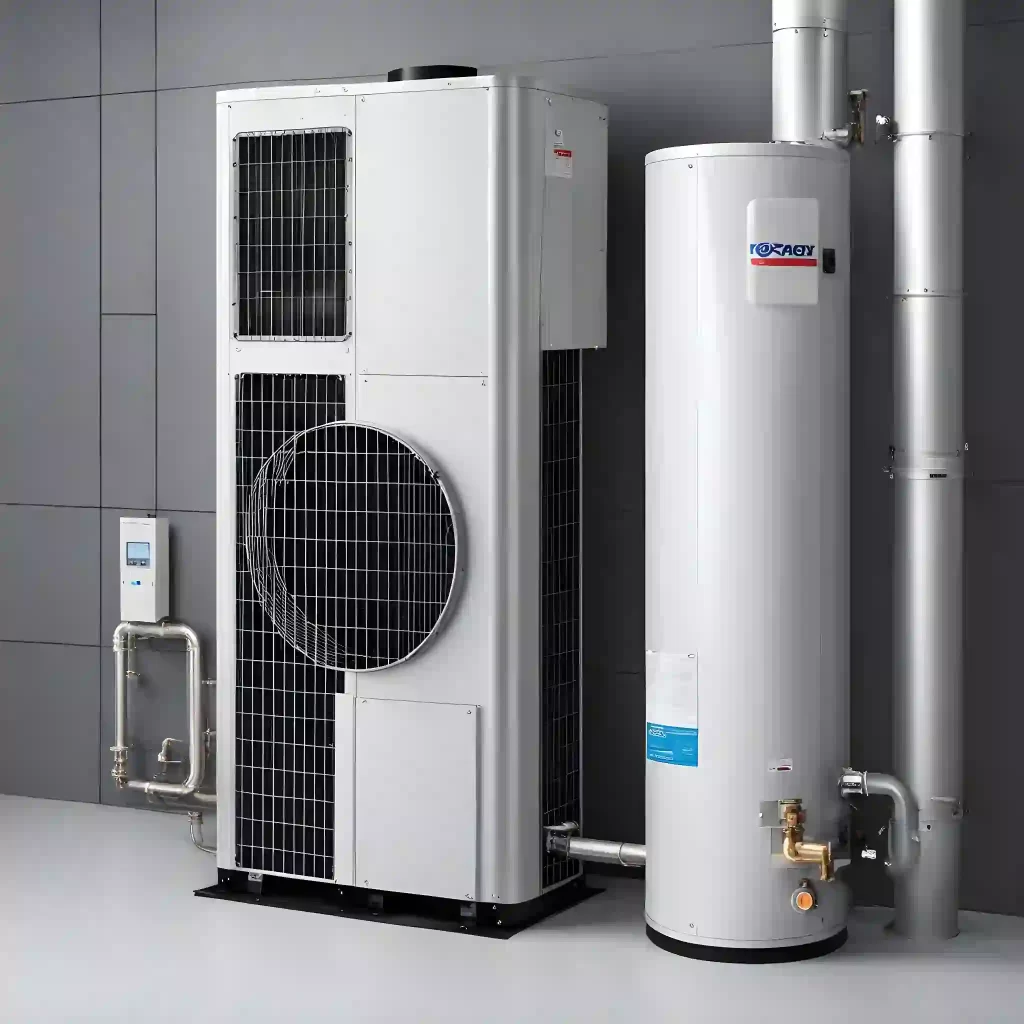
Heat pump water heaters or hybrid water heaters (whatever you name it) are the modern versions of the traditional tank water heater.
The difference is the conventional tank water heater generates heat directly. But the heat pump water heater moves heat from one place to another using electricity.
Now, let’s explore how this water heater works, its benefits, and disadvantages.
How Does A Heat Pump Water Heater Work:
This water heater works by moving heat from the air in the room to water in the tank.
To begin, a fan draws air across fins on a radiator-like device called an evaporator. The heat in the air is absorbed by refrigerant flowing through the evaporator. The refrigerant in a vaporous state is being compressed, raising its temperature and pressure. The hot vapor refrigerant then flows through copper in the water tank, heating the water and cooling the refrigerant.
Having given up its heat, the refrigerant condenses back to a liquid. and the cycle begins again at the evaporator.
In the building’s water system, cold water gets cycled into the bottom of the tank where it absorbs the heat from refrigerant and exits near the top of the tank as hot water.
Pros:
- More energy-efficient compared to your conventional electric water heater
- Emit fewer greenhouse gases compared to your traditional water heater
- Long lifespan
- Low operating cost
Cons:
- The upfront cost is high, which can leave a dent in your pocket.
- It requires a lot of space for installation.
- This system can make a noise in the heating mode
Condensing Water Heater
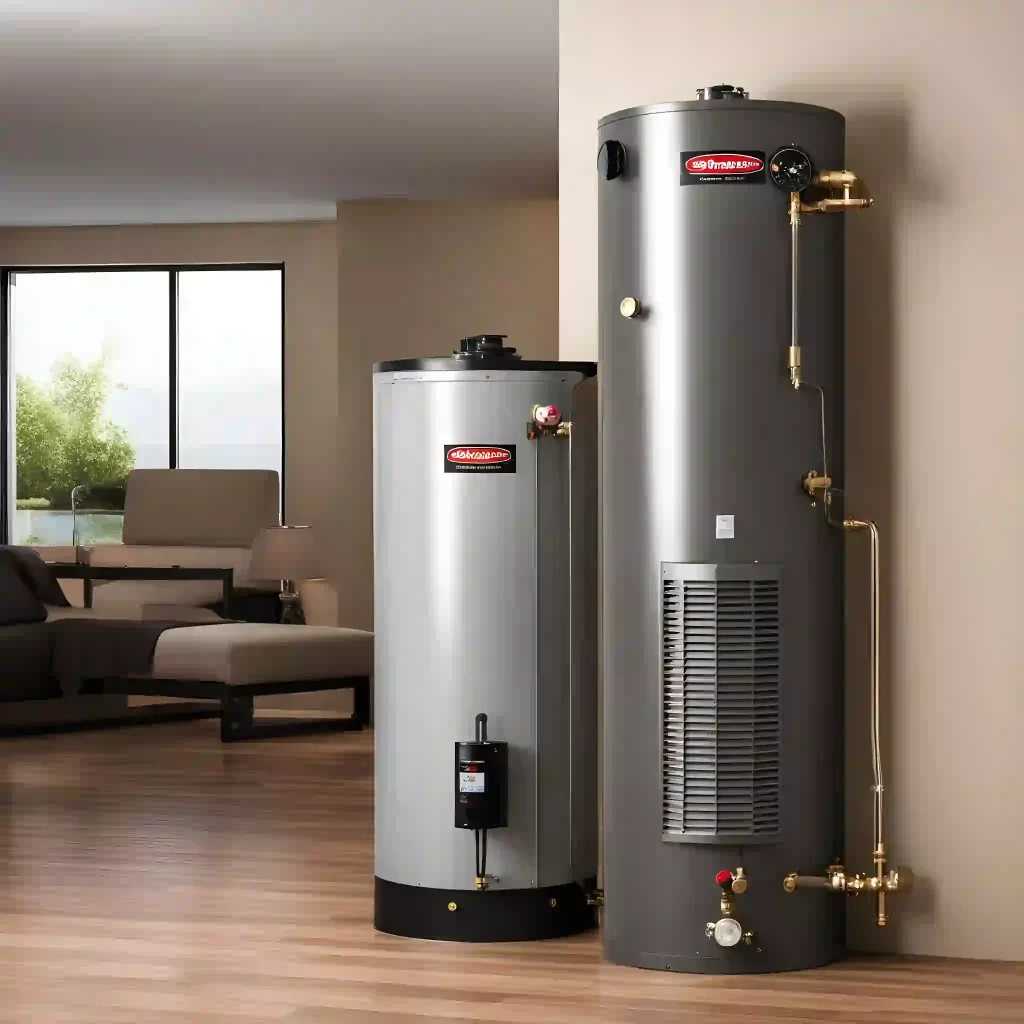
A condensing water heater is more energy-efficient and leaves fewer carbon footprints than your conventional water heaters. It uses an advanced technology that extracts additional heat from combustion gasses. As a result, you will gain superior efficiency and energy consumption from this unit.
How Does A Condensing Water Heater Work:
Though the physical appearance or functionality of a condensing unit vs a traditional water heater is the same, there is a subtle difference between them.
And the difference is a condensing water heater has a secondary heat exchanger.
Once the initial heat is transferred to the water heater, the secondary heat exchanger passes the hot combustion gasses through it. Then, the heat exchanger brings the temperature to a lower level, where the gasses begin to condense. This is where the term ‘condensing’ derives from. As the gasses condense, they release even more heat energy.
A condensing heating system can achieve higher energy efficiency (about 90%) by capturing the heat from the condensing process.
Pros:
- 3x energy efficient than the traditional electric water heater
- Produce fewer carbon or greenhouse gas emissions
- Low operating cost
Cons:
- Need professional installation that adds cost to the list
- Require special venting to handle condensate
Point-of-Use Water Heater
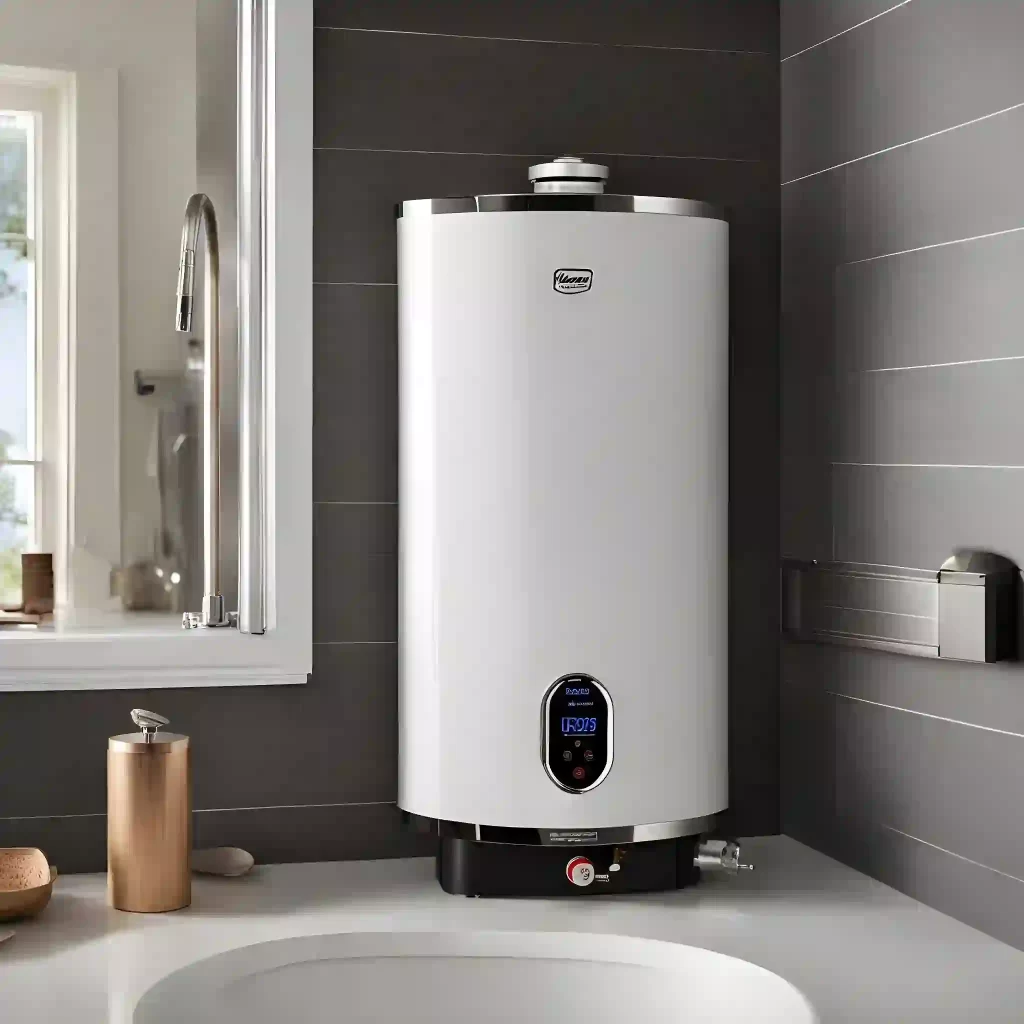
Do you need a supplemental heating system to get hot water from the faucet far from your central water heater? Then, Point-of-Use Water Heaters can be the best choice.
Typically, the term ‘Point Of Use’ is applied as the heating system heats water near the fixture, sink, and shower where the water is used, instead of a central heater.
Pros:
- This water heater heats water directly at the source and reduces heat loss through long pipes
- Its small size makes the unit compact and space-friendly
- Provide hot water when you need it
Cons:
- It’s not perfect for whole-house use
FAQs
What is the difference between a storage tank and a tankless water heater?
A storage water heater, as the name suggests, stores a volume of water and heats the water continuously. On the other hand, a tankless unit heats water on demand. Apart from this, a tankless unit is more energy-efficient than a storage water heater, though it has the limitations of delivering hot water simultaneously to multiple fixtures.
Are solar water heaters a practical choice for my home?
It depends on multiple factors. For example, weather conditions, sun exposure, and incentives are some criteria that will help you decide whether solar water heaters are practical or not for your home. Yes, this water heater is eco-friendly, but the initial cost is high.
How do I choose the right water heater for my home?
Criteria like hot water demands, available space, energy efficiency, and budget will help you select the right water heater for your home.
End-Note
You can find different types of water heaters in the market. I already described how each water heater works, its benefits, and drawbacks.
Now, it’s time for you to decide which type of water heater you should go for based on your personal preferences. It might be best to consult with a certified plumber regarding this.
References:
- Tankless or Demand-Type Water Heaters: https://www.energy.gov/energysaver/tankless-or-demand-type-water-heaters
- Storage Water Heaters: https://www.energy.gov/energysaver/storage-water-heaters
- Solar Water Heater: https://www.britannica.com/technology/solar-water-heater

Sohel Rana is an expert writer (Of course, the owner and founder of this blog) on plumbing, HVAC, and appliance repair & troubleshooting. Since 2020, he has written on these specific topics, though his writing journey began in 2018.
